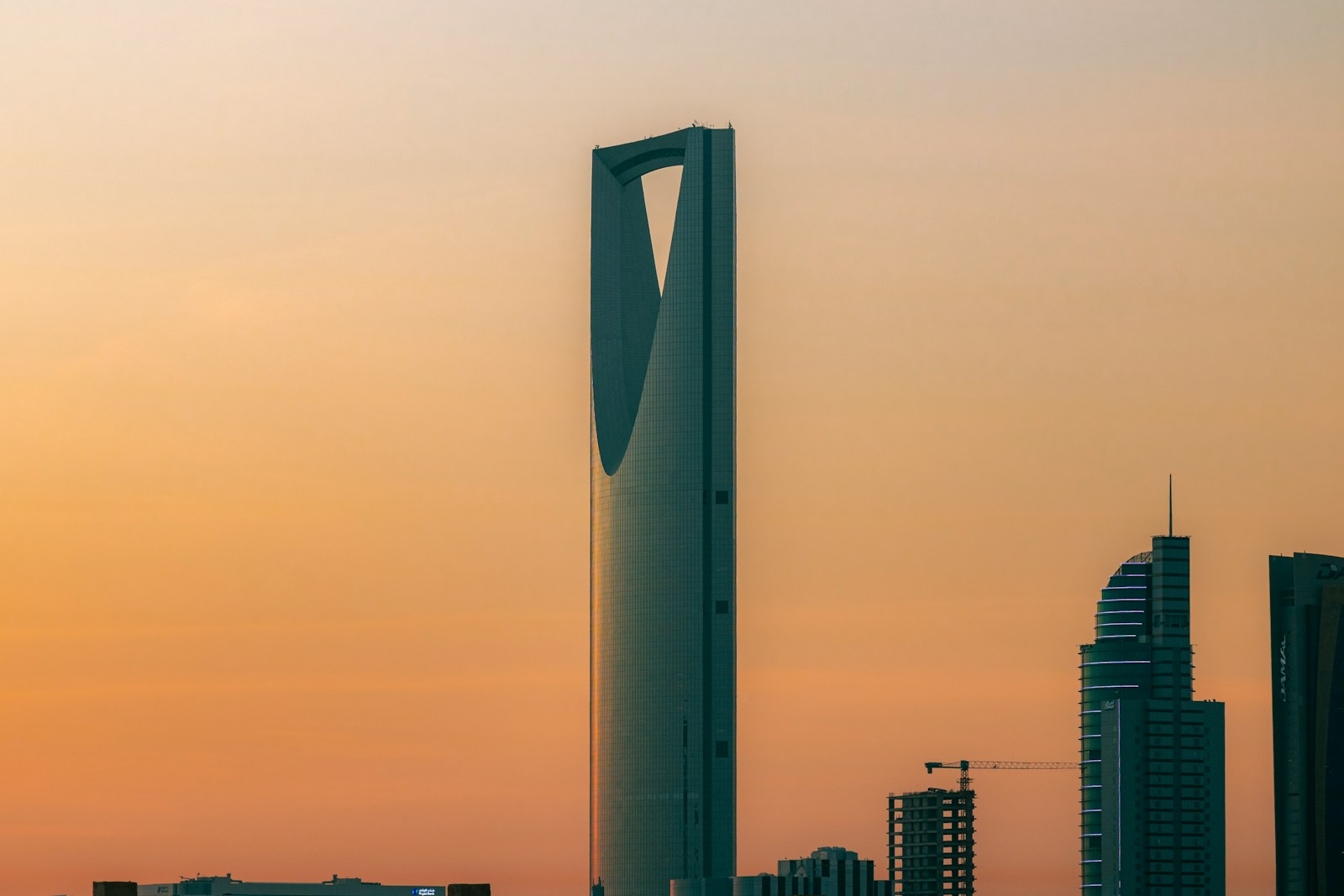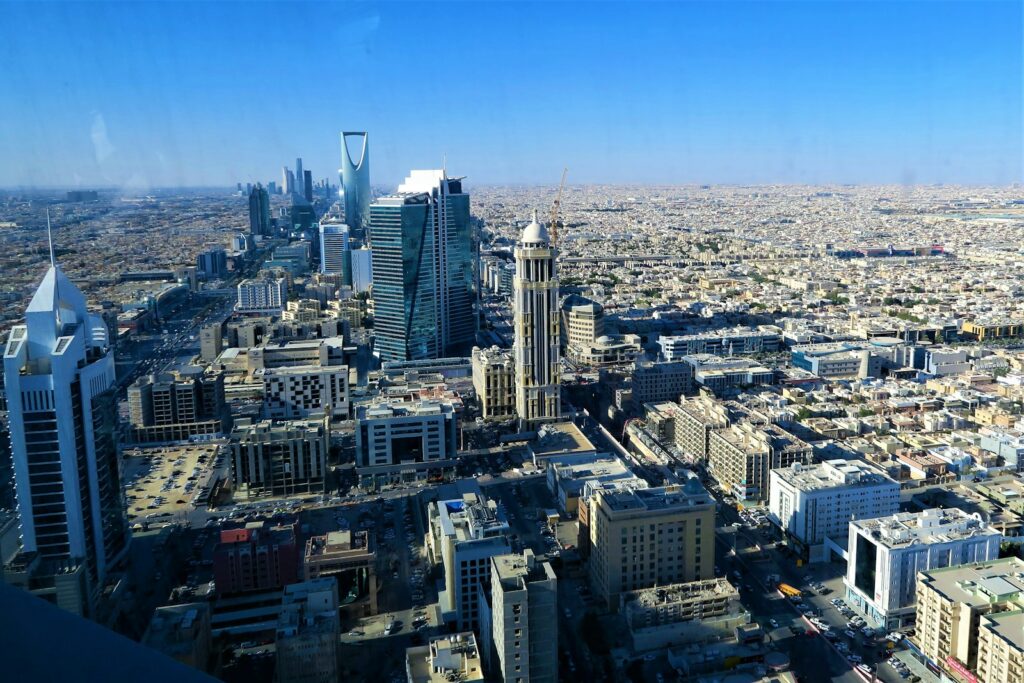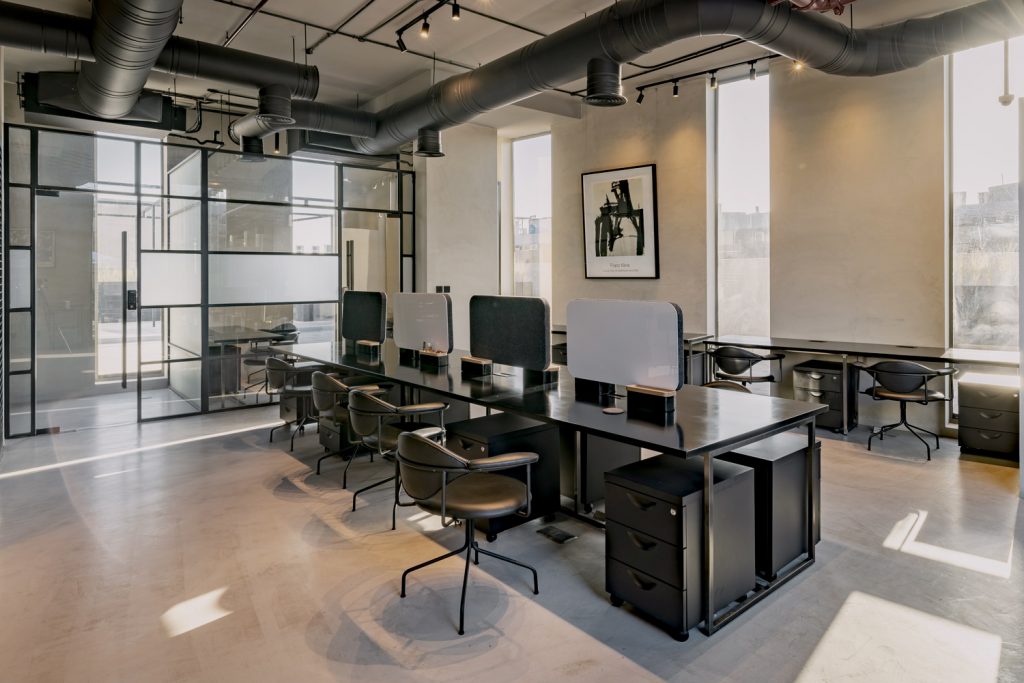5 Reasons Why Startups Are Moving Their Headquarters to Riyadh

With access to major funding programs, tax incentives, and a growing investor ecosystem, Riyadh has positioned itself as a startup-friendly city. The city also offers excellent infrastructure, coworking communities, and global networking opportunities. For many founders, relocating to Riyadh means lower operational costs and stronger long-term growth potential.
This blog post explores five compelling reasons why startups from around the world are choosing to move their headquarters to Riyadh.
| Reason | What Makes It Valuable | Impact on Startups |
|---|---|---|
| 1. Government Support & Vision 2030 | Massive reforms, funding programs, and foreign ownership incentives designed to support tech entrepreneurship | Simplifies setup, attracts capital, and integrates startups into national innovation priorities |
| 2. Venture Capital Growth | Presence of mega VCs like STV, Sanabil, and government-backed accelerators | Increased funding opportunities, especially for fintech, AI, and logistics startups |
| 3. Strategic Location | Proximity to GCC markets, top-tier infrastructure, and mega-projects like NEOM | Offers market expansion and regional dominance potential |
| 4. Talent & Digital Infrastructure | STEM-focused universities, AI-ready workforce, and high-speed broadband penetration | Access to a skilled, tech-ready labor force with minimal infrastructure barriers |
| 5. Business Environment & Lifestyle | 30-year tax incentives, improved urban living, and strong regulatory modernization | Creates long-term operational advantages and attracts global talent |
Unprecedented Government Support and Vision 2030 Initiatives
Vision 2030: A Startup-Friendly Transformation
Vision 2030 is Saudi Arabia’s national reform agenda aimed at reducing the country’s reliance on oil by cultivating new sectors such as technology, tourism, entertainment, renewable energy, and entrepreneurship. The plan is bold, future-focused, and deeply intertwined with Riyadh’s evolution into a regional startup powerhouse.
One of the core pillars of Vision 2030 is the development of a thriving private sector. Startups and SMEs are at the center of this vision, representing the backbone of future job creation, innovation, and economic growth. By fostering an environment that supports business creation, attracts foreign investment, and nurtures talent, the government is strategically aligning its policies to build a resilient ecosystem for startups.
Key Programs Fueling Startup Growth
The Saudi government has rolled out a range of programs specifically designed to stimulate the growth of tech startups and scale-ups. These initiatives offer funding, regulatory assistance, incubation, and ecosystem support:
Saudi Unicorns Program
A flagship initiative under Vision 2030, the Saudi Unicorns Program supports high-potential tech startups in reaching unicorn status (valuation over $1 billion). This initiative provides tailored support for scaling, including mentorship, infrastructure access, and strategic partnerships. By targeting startups on the verge of hyper-growth, Saudi Arabia is cultivating a globally competitive tech scene.
Monsha’at – The General Authority for SMEs
Monsha’at is a dedicated government body that provides a wide array of services to startups and small businesses. From simplifying the business registration process to offering training, access to financing, and matchmaking with investors, Monsha’at plays a central role in reducing the friction typically faced by founders in early-stage operations.
Saudi Venture Capital Company (SVC)
The SVC is one of the most active government-backed venture entities in the MENA region. It invests directly in startups and indirectly through venture capital funds. With over a billion SAR deployed across multiple sectors, SVC significantly boosts the availability of early-stage and growth capital in the ecosystem, particularly for tech ventures.
National Technology Development Program (NTDP)
The NTDP offers funding, grants, and technical support for startups building in emerging technologies such as artificial intelligence, cybersecurity, and fintech. It also partners with global accelerators to integrate Saudi startups into international innovation networks, ensuring that local talent remains globally competitive.
Legal Reforms and Simplified Business Setup
To attract foreign entrepreneurs and facilitate startup operations, Saudi Arabia has overhauled many of its business and legal frameworks.
100% Foreign Ownership
One of the most transformative changes is the allowance of 100% foreign ownership in key sectors, removing the previously mandatory requirement for a local Saudi partner. This move drastically reduces entry barriers and makes Riyadh a far more appealing destination for international startups and investors.
Modern Bankruptcy Law
The 2018 Bankruptcy Law represents a significant step forward in providing startups with legal protection and financial breathing room. Unlike traditional liquidation-focused systems, the Saudi law emphasizes debt restructuring and recovery, enabling startups to negotiate with creditors and avoid premature closure. This has been particularly beneficial for tech companies navigating the high-risk early stages of product development.
Saudi Business Center (SBC)
The Saudi Business Center serves as a one-stop-shop for business registration, licensing, and support services. Its digital platform and streamlined processes dramatically reduce the time and complexity of starting a business in Riyadh. Entrepreneurs can now register a company, obtain licenses, and access government services faster than ever before.
A Booming Venture Capital and Investment Scene
Major VC Engines Driving Growth:
- STV (Saudi Technology Ventures): With over $500 million in capital under management, STV is the largest independent VC fund in the Middle East. It focuses on growth-stage investments across sectors like fintech, SaaS, logistics, and marketplaces, and plays a critical role in scaling Saudi-based tech companies regionally and globally.
- Sanabil Investments: Backed by the Public Investment Fund (PIF), Sanabil offers long-horizon capital with a strong appetite for high-growth tech startups. Their support is not limited to local ventures – Sanabil actively invests in global startups with the potential to scale into the Saudi market.
- Impact46: A Riyadh-based VC firm known for early-stage bets on bold founders. With a portfolio spanning fintech, cloud solutions, and consumer platforms, Impact46 is one of the most startup-friendly firms in the Kingdom, often bridging the gap between angel and institutional rounds.
- PIF (Public Investment Fund): As the Kingdom’s $700+ billion sovereign wealth fund, PIF plays a transformative role in shaping the ecosystem. Through direct investments and backing VC firms like Sanabil, it injects deep liquidity into the market and ensures long-term sustainability of the innovation landscape.
Notable Funding Successes That Put Riyadh on the Map:
- Tamara: The buy-now-pay-later fintech raised over $150 million, becoming the Kingdom’s first fintech unicorn and a symbol of regulatory alignment between SAMA and startup innovators.
- Jahez: A food delivery startup that not only raised $36.5 million in private capital but also became one of the first tech startups to go public on the Saudi Tadawul exchange – demonstrating clear exit potential.
- Unifonic: A cloud communications platform that raised a record-breaking $125 million Series B round, one of the largest ever in Saudi Arabia, signaling serious investor interest in B2B SaaS infrastructure.
These are more than headline-grabbing success stories – they’re a signal to founders across the region: Riyadh has the capital, the ambition, and the infrastructure to back world-class ventures.

Strategic Location and Regional Access
Riyadh as a Gateway to the GCC and MENA
Saudi Arabia is not only the largest economy in the Arab world, but also a strategic hub that enables startups to scale regionally with efficiency and speed. Riyadh’s central geographic location allows easy access to key markets such as:
- United Arab Emirates
- Qatar
- Kuwait
- Bahrain
This proximity to high-income, digitally mature markets gives startups headquartered in Riyadh a competitive advantage in expanding across the Gulf. With over 36 million residents, a growing middle class, and high consumer purchasing power, Saudi Arabia also offers a massive domestic market that serves as a launchpad before international scaling.
Logistics and Infrastructure Powerhouse
Saudi Arabia has invested hundreds of billions of dollars in building a world-class logistics and infrastructure backbone, much of which is centered in Riyadh.
Key infrastructure projects and assets:
- Riyadh Air: The newly launched airline aims to turn Riyadh into a global aviation hub, connecting international markets directly with the Saudi capital.
- Red Sea Ports: Supporting trade and logistics from Asia and Europe.
- King Abdullah Financial District (KAFD): Riyadh’s futuristic business center, equipped with smart infrastructure and built to host multinational corporations and large-scale enterprise hubs.
- NEOM: A $500 billion smart city project under construction, offering a high-tech base for startups in AI, renewable energy, mobility, and biotech.
- Riyadh Tech Valley: A dedicated hub for AI, robotics, IoT, and other cutting-edge technologies.
These projects reflect Saudi Arabia’s commitment to not just compete, but lead in innovation and business infrastructure within the MENA region.
High-Profile Events Attracting Global Attention
Another factor that enhances Riyadh’s appeal is its increasing visibility on the global innovation calendar. High-impact business and tech events hosted in the city provide a platform for startups to connect with investors, mentors, and corporate partners.
Key events include:
- LEAP Tech Conference: One of the largest global tech gatherings, featuring thought leaders, VCs, and tech giants. LEAP 2024 hosted over 100,000 attendees and showcased startups from 180+ countries.
- Riyadh Season: A cultural and entertainment mega-event that draws millions of visitors and has become a hotspot for experiential marketing, brand launches, and B2C activations.
- International Investor Summits: Regularly hosted by the Ministry of Investment, these events bring institutional investors and sovereign wealth fund representatives to the table with emerging entrepreneurs.
Such events create unparalleled opportunities for networking, exposure to capital, and collaboration, further solidifying Riyadh’s position as the epicenter of regional startup activity.

Talent, Education, and Digital Infrastructure
Access to Skilled and Tech-Ready Labor
Saudi Arabia has made significant investments in building a knowledge-based economy, placing a strong emphasis on education – especially in Science, Technology, Engineering, and Mathematics (STEM) fields. These investments are paying off, as the local talent pipeline is becoming increasingly aligned with the needs of tech startups and innovation-led enterprises.
Growth of STEM Programs in Saudi Universities
As of 2024:
- 86% of Saudi universities offer undergraduate programs in AI and related fields
- 56% provide master’s programs, and
- 9% offer doctoral-level studies in data science, machine learning, cybersecurity, and other future-critical disciplines
This massive push in curriculum modernization means that founders can now source homegrown talent with practical, up-to-date expertise. Saudi students are increasingly graduating with globally competitive skills, particularly in software development, AI, data engineering, and systems architecture.
Role of Institutions like KAUST and KFUPM
Two institutions stand out as innovation powerhouses in the region:
- King Abdullah University of Science and Technology (KAUST): A research-focused university that serves as a bridge between academia and industry. KAUST collaborates with global companies and startups, supporting R&D, prototype development, and IP commercialization.
- King Fahd University of Petroleum & Minerals (KFUPM): Historically focused on energy and engineering, KFUPM is evolving into a multidisciplinary tech university, now offering programs in AI, cloud computing, and digital transformation. It serves as a key supplier of technical talent, especially in software engineering and infrastructure management.
These universities are not only producing graduates but are also playing a central role in creating innovation clusters, fostering startup spinouts, and facilitating access to labs, mentorship, and early-stage funding.
High-Speed Connectivity & Digital Backbone
Riyadh is not just preparing for the digital age – it is already operating within it. The Saudi government’s emphasis on digital transformation has resulted in the development of one of the most robust internet and data infrastructures in the MENA region.
Record-Breaking Broadband Performance
According to recent data:
- 14% of broadband users in Saudi Arabia enjoy speeds of over 1 Gbps, compared to just 4% in the UK.
- The city’s core commercial districts benefit from fiber-optic infrastructure, enabling high-volume data transfers, real-time collaboration, and low-latency computing – key for SaaS, AI, and fintech operations.
This level of connectivity is critical for remote teams, cloud-based systems, and high-frequency transaction platforms, making Riyadh a prime location for digital-first enterprises.
National AI Strategy and E-Government Initiatives
Launched under Vision 2030, the National Strategy for Data & Artificial Intelligence (NSDAI) outlines Saudi Arabia’s ambition to become a global AI leader by 2030. Core objectives include:
- Integrating AI into public services and healthcare
- Funding deep tech startups
- Promoting open data usage across sectors
- Positioning Saudi Arabia among the top 15 AI nations globally
These goals are reinforced by massive digital government initiatives led by the Digital Government Authority (DGA), which standardizes digital infrastructure, enhances cybersecurity, and opens APIs for startup collaboration.
The combination of policy alignment, connectivity, and technical readiness has made Riyadh one of the most digitally advanced cities in the MENA region.
Bilingual Business Environment
For foreign entrepreneurs and startup founders, one of the most important considerations when relocating is language. While Saudi Arabia is not officially an English-speaking country, English is widely used and accepted in the business, education, and tech ecosystems.
English as the Language of Business and Tech
In Riyadh’s corporate and startup environments:
- Most meetings, contracts, pitch decks, and internal communications are conducted in English
- Multinational companies, venture capital firms, and government innovation programs operate in English by default
- Universities, especially KAUST and KFUPM, teach STEM courses in English, and many graduates are fluent due to international study or exposure
As a result, founders, engineers, and investors from abroad can operate seamlessly, particularly within the private sector.
Legal and Governmental Considerations
That said, Arabic remains the official language for all legal documentation, including:
- Business registration documents
- Court filings
- Employment contracts
- Regulatory approvals
Startups should plan to work with reliable legal translation partners or local counsel to ensure full compliance. For long-term success, especially when dealing with government agencies like SAGIA (Saudi Arabian General Investment Authority), Arabic fluency in legal contexts remains essential.
Business-Friendly Environment and Quality of Life
Infrastructure Designed for Global Companies
Riyadh has gone to great lengths to position itself as a headquarters destination for multinationals and regional offices, supported by bold government incentives and strategic planning.
The Regional Headquarters Program
Since the launch of the Saudi Program for Attracting Regional Headquarters in 2021:
- Over 600 foreign companies have established regional HQs in Riyadh
- Backed by the Ministry of Investment and the Royal Commission for Riyadh City, the program offers:
- A 30-year corporate tax relief (0% corporate tax and 0% withholding tax)
- Expedited licensing and setup processes
- Access to world-class infrastructure, meeting international corporate standards
These benefits make Riyadh not just a cost-effective choice, but a strategically advantageous one for startups that aim to grow into multi-market businesses across the Gulf and North Africa.

Cost Considerations vs. Dubai
One of Riyadh’s most compelling advantages is operational cost efficiency, especially when compared with nearby startup hubs like Dubai.
Key Cost Factors:
- Office Rent: While premium districts like the King Abdullah Financial District command high prices, overall real estate is more affordable than Dubai, especially for startups willing to locate in newer business zones.
- Customer Acquisition Costs (CAC): Riyadh benefits from a less saturated ad market and rising digital adoption, allowing startups to reach their target audiences with lower ad spend.
- Talent Costs: Salaries for software engineers and digital professionals in Riyadh are competitive but lower than in the UAE
- Taxes: Corporate tax stands at 20%, but tax incentives (such as those for HQs) and competitive VAT (15%) keep Riyadh attractive for lean startups managing cash flow.
Startups relocating to Riyadh often find they can extend their runway, invest more into product development, and scale with greater financial flexibility.
The Ideal Workspace for Startups in Riyadh: R House
At R House, form and function blend seamlessly. The space is designed to accommodate startups at every stage of growth – from solo founders to expanding teams – by offering a wide range of studio spaces, shared desks, and meeting rooms equipped with the latest technology.
R House provides:
- Creative studios for deep focus and brainstorming
- Private offices with ergonomic furniture and lockable storage
- Fully equipped meeting rooms for formal presentations and team discussions
- Collaborative communal areas ideal for networking, inspiration, or casual work
With four tiers of flexible membership options, R House adapts to your business model and growth stage:
- Resident Members enjoy 24/7 access to their own dedicated office or studio, including full use of meeting rooms and project spaces.
- Collaborator Members have assigned desks in a shared environment with access during standard business hours (Sunday–Thursday, 8 AM–8 PM).
- Nomad Members benefit from access to shared spaces, ideal for freelancers or remote professionals with flexible schedules.
- Transient Members receive 10-day-per-month access, perfect for consultants, international teams, or startups in transition.
Each membership tier includes the ability to book additional rooms and services, with access tailored to your specific operational needs.
Amenities Designed for Growing Teams
Startups need more than just desks and Wi-Fi. They need a reliable, professional environment that supports their day-to-day operations and long-term vision. R House delivers a wide array of amenities that address the practical, creative, and well-being needs of modern teams.
Key amenities include:
- High-speed internet and printing services with tiered monthly allocations based on membership
- Mailing and business address services, so you can officially operate your HQ from a prestigious location
- Private phone booths for confidential calls and remote meetings
- Well-stocked kitchen and break area featuring artisan roasted coffee and healthy snacks
- Private showers for members who bike to work or need to freshen up before events or meetings
- Secure storage options for resident and collaborator members
- On-site parking, available on a daily or monthly basis
Meeting and project spaces are a signature feature of R House, with a diverse range of rooms suited for various use cases:
- The Boardroom – a formal, tech-enabled space for up to eight people, perfect for high-stakes presentations or investor meetings
- The Meeting Room – accommodates up to six people for collaborative planning or check-ins
- The White Room – an open-concept, art studio-style space designed for brainstorming, photography, screenings, or creative workshops
- The Workshop Room – the largest private space on-site, ideal for seminars, training sessions, or large-scale team events
Each space is bookable via the R House App or website, with built-in AV support, video conferencing technology, and full technical assistance available on request.

Frequently Asked Questions
Can a startup be 100% foreign-owned in Saudi Arabia?
Yes, Saudi Arabia allows 100% foreign ownership in many sectors, especially for startups operating in technology, innovation, and services. This regulatory shift has significantly simplified company registration for international founders who no longer need a local partner.
Is it easy to get funding for a startup in Riyadh?
Riyadh has one of the most active venture capital scenes in the MENA region, supported by major firms like STV, Sanabil Investments, and Impact46. There is growing availability of both seed and growth-stage funding, especially in fintech, e-commerce, healthtech, and AI sectors.
Do I need to speak Arabic to run a business in Riyadh?
While Arabic is the official language, English is widely used in the startup, business, and investment communities. Most legal documents must be filed in Arabic, so legal or translation assistance may be required. Daily operations and investor relations can typically be conducted in English.
How do Saudization rules affect startups?
Startups must comply with Saudization quotas under the Nitaqat system, which requires hiring a percentage of Saudi nationals based on company size and sector. While this adds complexity to hiring, the government provides incentives, training programs, and support to ease the process for new businesses.
What makes R House a good option for startup teams in Riyadh?
R House offers a progressive, design-led coworking environment with studios, private offices, shared desks, and high-tech meeting rooms. With flexible memberships, 24/7 access (for some tiers), and a curated community of creators and entrepreneurs, it’s the ideal base for startups seeking to thrive in Riyadh.







